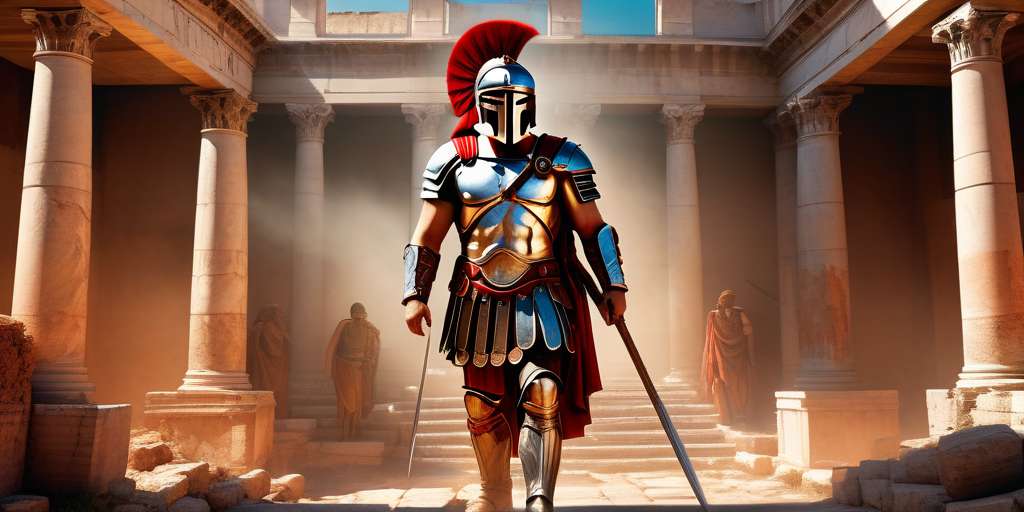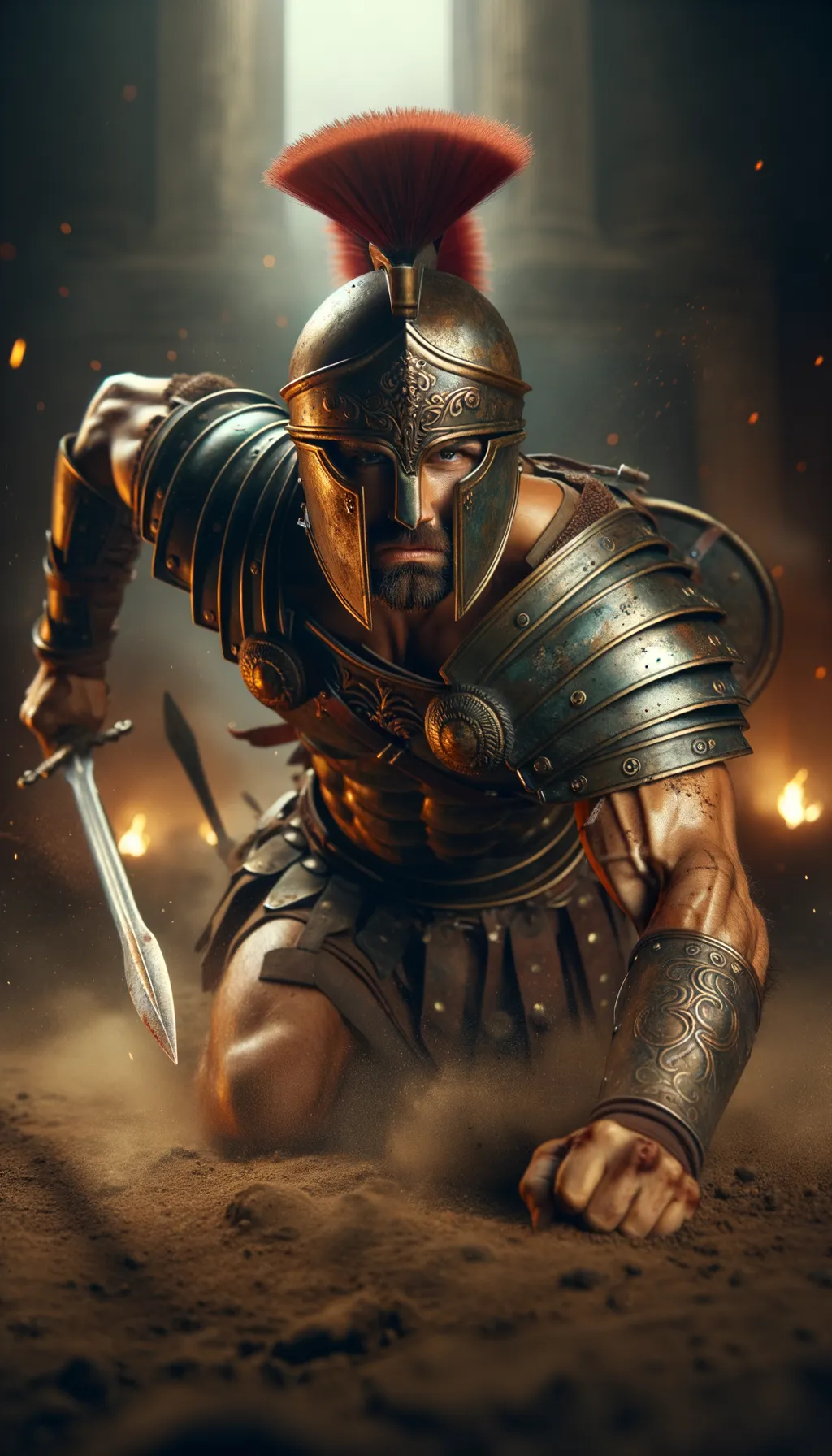The god Mars, a prominent figure in Roman mythology, was the protector of Rome and its way of life.
Considered the second most important god after Jupiter, his role was to defend the limits and borders of the city, as well as to protect the fields and crops.
He is credited as the father of the mythical founders of Rome, Romulus and Remus, and his marriage to Anna Perenna was celebrated on the ides of March.
In Roman art, Mars was depicted as a brave armed warrior.
His cult was manifested in festivals and ceremonies.
Mars and its relationship with the Greek gods
Although Mars was a Roman god, Roman mythology adopted many of the myths related to Ares, the Greek god of war.
However, unlike Ares, Mars was considered more sensible and virtuous.
This adaptation made it possible to integrate the figure of Mars into the Roman pantheon without losing his identity and unique characteristics.
Mars’ romance with Rhea Silvia
The god Mars, besides being known for being the god of war and protector of Rome, also had a legendary affair with Rhea Silvia, a vestal virgin.
This relationship gave birth to the famous founders of Rome, Romulus and Remus.
Mars as father of Romulus and Remus
According to Roman mythology, Mars fell in love with Rhea Silvia, who subsequently became pregnant and gave birth to twin boys, Romulus and Remus.
These children were abandoned in the Tiber River, but were saved by a she-wolf who suckled them and nursed them until they were found by a shepherd.
Romulus and Remus’ divine lineage as sons of Mars gave them a superior status and was a key factor in their prominent role as founders of the city of Rome.
Rhea Silvia’s vision and the symbolic tree
Before her romance with Mars, Rhea Silvia had a prophetic vision in which she saw a tree sprouting from a fork that Mars had dropped.
This vision symbolized the success and growth of the Roman Empire, as well as the lasting influence of Mars on the city of Rome.
The tree became an important symbol for Roman mythology and was associated with the divine genealogy of Romulus and Remus, as well as with the power and strength of Mars as the god of war.
These mythological stories highlight the importance of this god as a central figure in the origin and destiny of Rome, as well as his role as the legendary father of the founders of the city.
Marte’s marriage to Anna Perenna
The marriage of Mars to Anna Perenna is one of the most interesting episodes in Roman mythology.
In this section, we will explore how the god Mars, in love with Minerva, was involved in a female deception by Anna Perenna.
Mars’ love for Minerva
Mars, the valiant god of war, was smitten with Minerva, the goddess of wisdom and military strategy.
However, Minerva rejected his amorous advances, leaving Mars desolate and in search of solace.
The female deception by Anna Perenna
In his desire to overcome Minerva’s rejection, Mars decided to look for a new companion and found Anna Perenna.
Longing for Minerva’s love, Anna Perenna disguised herself as the wise goddess and agreed to marry Mars.
Representation of Mars in Roman Art
Mars, the Roman god of war, was depicted in an imposing manner in Roman art.
His figure was portrayed as a valiant warrior, dressed in armor and a crested helmet.
These visual representations sought to reflect his power on the battlefield.
Mars as a brave warrior in Roman iconography
In artistic representations, Mars was shown holding a spear or a sword, symbolizing his skill and prowess in combat.
His posture was energetic and confident, conveying a sense of strength and bravery.
In addition to his armor, he was often depicted with shields and other war-related items.
The statue of Mars Ultor in the temple of Augustus’ forum.
One of the most famous images of Mars was the statue of Mars Ultor, located in the temple of the same name in the forum of Augustus.
This statue was considered a representation of the power and strength of Mars.
The statue showed Mars in a victorious position, with a serene but imposing expression.
Dressed in his armor and holding a spear, he conveyed a sense of dominance and control.
The presence of this statue in the temple was a constant reminder of the role of Mars, protector of Rome.
Epithets and attributes of Mars in warfare
Within Roman mythology, Mars, the god of war, was known by a series of epithets and attributes that described different aspects of his personality and his role on the battlefield.
Mars Gradivus, Mars Pater, Mars Ultor and Mars Invictus
One of the most recognized epithets of Mars was Mars Gradivus, which translates as “Mars, the advance.”
This epithet highlighted the battle-hardened nature and courage of the god of war, depicting him as a brave and bold leader in battle.
Another important epithet is Mars Pater, meaning “Mars, the father”.
This title referred to his role as father of Romulus and Remus, the mythical founders of Rome.
Mars Ultor, or “Mars, the avenger”, was another epithet associated with Mars.
This title highlighted his function of protecting and avenging Rome against its enemies, ensuring victory in war and the defense of Roman interests.
In addition, he is attributed the title of Mars Invictus, which means “Mars, the undefeated”.
This epithet highlighted the invincibility and power of the god on the battlefield, symbolizing the impossibility of being defeated.
The cult of Mars and its festivals in honor of the god of war
The cult of Mars was very important in ancient Rome and was manifested through various festivals and ceremonies.
These celebrations were intended to honor Mars, to ask for his protection and favor in times of war, and to pay tribute to him for his victories.
- Animal sacrifices, especially oxen and pigs, were carried out as offerings to Mars.
These sacrifices symbolized the giving of life and gratitude for the protection provided by the god of war. - In addition, there were processions, dances and songs in which the figure and exploits of Mars were exalted.
These festive activities brought the community together and strengthened the spirit of unity and courage in times of conflict. - Particularly noteworthy was the festival called “Martius”, named after Mars himself and held in the month of March, which took its name in honor of the god.
If you want to visit Rome, the city that had Mars as its highest protector, here is a good option for a queue-free tour of the Colosseum, the Roman Forum and the Palatine Hill.
Subscribe
If you want to receive in your mailbox stories, curiosities and legends of the most fascinating creatures of classical mythology just fill in this form.
Continue reading
If you liked this article, you like mythology.
And in this case, we have much more to offer you.
Discover new adventures, heroes, nymphs, gods, battles, teachings…
Just click on the button.
mitologiaclasica.com is a website dedicated to explore and spread the fascinating richness of mythology, offering a vast compendium of stories, characters and legends.
Explore
Greek Mythology
Roman Mythology
Norse Mythology
Egyptian Mythology
Hindu Mythology
Chinese Mythology
Japanese Mythology
Celtic Mythology
Privacy Policy
Privacy Policy
Copyright mitologiaclasica.com


